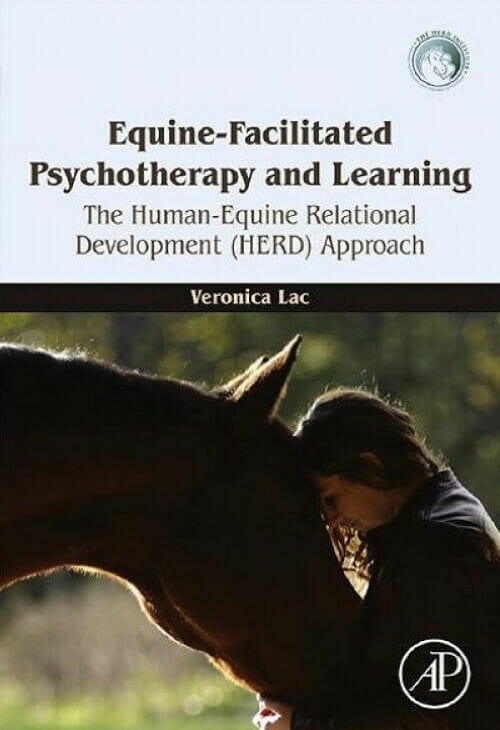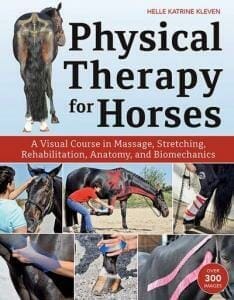Part I
Chapter 1. Introduction
Chapter 2. Why Horses? What is Equine Therapy?
- Abstract
- The Therapeutic Benefits of the Human–Equine Bond in Equine-Assisted Interventions
- “Equine Therapy”: The Need for Clarification
- Therapy Versus Therapeutic
- The HERD Institute Model of EFL
- Equine-Assisted/Facilitated Therapy
- What Is Equine-Assisted/Facilitated Psychotherapy?
- The HERD Institute Model of EFP
Chapter 3. Philosophical Foundations
- Abstract
- Philosophical Relevance
- Phenomenology and Embodiment
- Buber’s I-Thou
- Buber’s I-Thou and Horses
Chapter 4. Theoretical Foundations
- Abstract
- Broadening Horizons and Digging Deep
- Core Theory
- Embodiment and Authenticity
- The Embodied Relational Self
Chapter 5. Theoretical Foundations II: Where Does the Horse Fit in?
- Abstract
- The Magic of Horses
- Projection/Mirroring
- Attachment
- Groundwork
- Mounted Work
Part II
Chapter 6. Ethical Practice in EFPL
- Abstract
- The Professional Relationship
- Discussion on Safety and Ethics
- The HERD Safety Protocol
- Safety Around Horses
- A Safe Therapeutic Relationship
- The Role of Assistants
- A Safe Place
- Leveling the Playing Field: A Place in the Herd
- Ethics of Working With Horses
- Horsemanship Development
- Horse Suitability
Chapter 7. The HERD Model of Equine-Facilitated Psychotherapy
- Abstract
- Stage One: Sharing Space
- Stage Two: Release and Expand
- Stage Three: Deepening
- Stage Four: Coming Home
- Stage Five: Integration
- Summary
Chapter 8. The HERD Model of Equine Facilitated Learning
- Abstract
- Scope of Practice
- The HERD Model of EFL
- Experiential Learning
- Stage Two: Relating
- Stage Three: Integrating
- Themes, Culture, and Language
- Summary
Chapter 9. The HERD Model of EFP in Action
- Abstract
- You Had Me at Hello
- New Beginnings: Taking the First Step
- Case Studies
- Release and Expand
- Revisiting the Lessons Learned
- Back and Forth
- Case Study 2: Embodied Touch
- Case Study 3: The Language of Love
- Case Study 4: One Breath, One Movement
- Case Study 5: Integrating the HERD Model of EFP with Humanistic Play Therapy
- Case Study 6: Sinking into Support
- Case Study 7: We Are All Connected
- Case Study 8: Working with Veterans
- Conclusion
Chapter 10. The HERD Model of EFL in Action
- Abstract
- Case Study 1: Creating a “ME”-Shaped Space
- Case Study 2: A Bubble of Two
- Case Study 3: Anticipating Needs
- Case Study 4: Everyone Wants to Belong
- Case Study 5: Resilience and Vulnerability
- Case Study 6: Just Sniff
- Conclusion
Part III
Chapter 11. Horse Sense, Business Sense
- Abstract
- Starting Equine-Facilitated Work
- Setting Up Shop
- Human First Aid Kit
- Equine First Aid Kit
- Where Are You Going to Do the Work?
- Fee Structure
- Networking and Marketing
- Demonstrations and Workshops
- Conclusion
Chapter 12. Final words














![Ettinger’s Textbook of Veterinary Internal Medicine 9th Edition [PDF+Videos] Ettinger’s Textbook of Veterinary Internal Medicine 9th Edition [True PDF+Videos]](https://www.vet-ebooks.com/wp-content/uploads/2024/10/ettingers-textbook-of-veterinary-internal-medicine-9th-edition-100x70.jpg)

![Textbook of Veterinary Diagnostic Radiology 8th Edition [PDF+Videos+Quizzes] Thrall’s Textbook of Veterinary Diagnostic Radiology, 8th edition PDF](https://www.vet-ebooks.com/wp-content/uploads/2019/09/textbook-of-veterinary-diagnostic-radiology-8th-edition-100x70.jpg)






